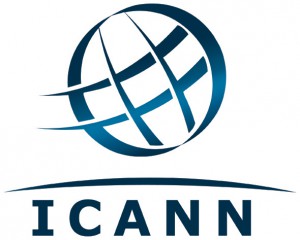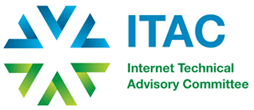By: Government Engagement Group, ICANN

The Internet Corporation for Assigned Names and Numbers (ICANN) was formed in 1998. Then there were about 150 million global Internet users, and only 7 Generic Top Level Domains (gTLDs). Today there are more than 3 billion Internet users, with at least 300 gTLDs (many of them offering names in non-Latin scripts) by the end of 2014.
Since its foundation, ICANN’s mission has always been global in context. With an international Board (with mandated representation from each Region) and a Community with business, civil society, users and government representatives from across the globe actively engaged in every aspect of ICANN’s work.
Under the leadership of the President and CEO Fadi Chehade, the program has been significantly intensified, with the establishment of three operational Hub Offices in Singapore, Istanbul and Los Angeles, as well as the opening of engagement offices in Beijing, Geneva, Montevideo and Seoul.
This approach, along with a corresponding recruitment of additional staff into the Global Stakeholder Engagement (GSE) team, has witnessed a significant growth in participation of all stakeholders in ICANN meetings, as well as participation of ICANN in discussions related to Internet Governance.
In March 2014, a further significant step on the globalization agenda took place, namely the US DOC announcement on their intended transition of the stewardship of the IANA functions to the global multistakeholder community. ICANN was asked to initiate a global dialogue on a multistakeholder mechanism to replace the US government’s stewardship role. To join the discussion, and contribute with ideas go to: http://www.icann.org/en/about/agreements/iana/transition
The globalization of ICANN is taking place against the backdrop of a global discussion on Internet Governance that the OECD has and will play an important role in (not least in the run up to the 2016 Ministerial).
With the adoption of multi-stakeholder OECD Internet Governance Principles in Paris in 2011, the ITU’s WCIT in 2012, the Brazilian hosted NetMundial Conference in April this year and the Report in May from the High Level IG Panel, a lively debate and discussions is taking place on the need for improving the current Ecosystem on Internet governance that might enhance the ability of it serve the needs of all stakeholders.
ICANN, both in the ITAC at OECD (which we find an excellent fora), and with other stakeholders, among them the Internet Engineering Task Force (IETF), the Internet Society (ISOC), and the World Wide Web Consortium (W3C); have been privileged to have been involved in these debates.
These discussions will continue through 2014 and beyond. The IGF is to take place in September in Istanbul; the ITU will have its Plenipotentiary Conference (PP-14) in Busan, South Korea in October and the UNGA looks set to discuss the Review of the World Summit on Information Society (WSIS) in 2015.
The multi-stakeholder approach for development of policies with respect to the governance of the Internet is thus dynamic and vibrant, but also faced by many challenges. We, however, believe that keeping, and further developing, the Internet as an open, interoperable, and innovative force for development and growth, governed in a bottom-up and inclusive way, and accessible for all, is a goal worth striving for.
__________________________________________
ICANN is a not-for-profit public-benefit corporation with participants from all over the world dedicated to keeping the Internet secure, stable and interoperable. It promotes competition and develops policy on the Internet’s unique identifiers. Through its coordination role of the Internet’s naming system, it does have an important impact on the expansion and evolution of the Internet.
